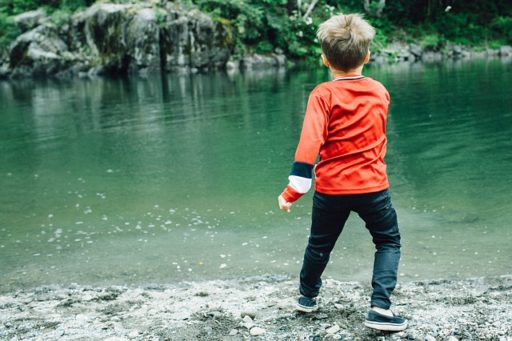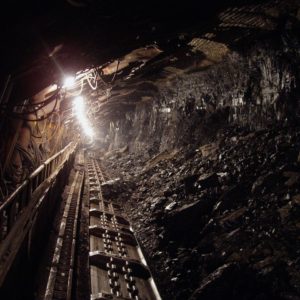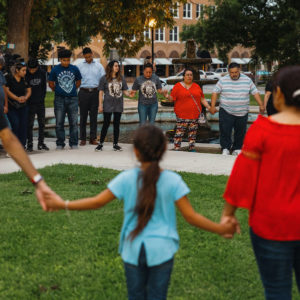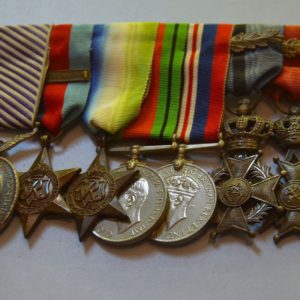There was this canal that divided our neighborhood. In 1978, on Florida’s east coast, subdivisions were cropping up all along the sandy, palm-littered I-95 corridor. These were intersected by canals and ditches, some extensions of the Lake Okeechobee Waterway, others just there to channel the drainage that’s inevitable when you plop thousands of quick-build homes on grit and sand. The water wound through reeds, slackening in places to a thick, still mass that blackened and stunk. The canals teemed with snakes and mosquitos and, rumor had it, the occasional gator looking to eat someone’s dog, or maybe one of us kids.
“Some guys came over while you were gone and threw rocks at your dog.”
That’s what the new kid said one afternoon. He had golden hair and a perpetual, toothy grin, and he’d announced the day we met that his dad built rockets. He’d told us he had eight unreleased Star Wars sequels at home, that his dad got hold of them because of his rocket work. We’d been asking for weeks if we could come over and see them, and each time he told us sure, we’d do that sooner or later. Every few days he had a different bike. None of us knew exactly where he lived.
Now he stood astride yet a different bike in the weedy dirt of my sun-blasted back yard, pointing at my dog Chrissy, a beagle/pointer mix I’d gotten for Christmas. She paid him no mind as she bounded from one to the other of us, her energy undiminished by the midday sun.
The new kid pointed to a copse of slash pine and told us he’d been hiding there when it happened. A bunch of kids from the other side of the canal. They’d found a way across and terrorized my dog. I knelt and checked Chrissy for injuries. She licked my face. She seemed fine, but then I noticed one of her hocks was crusted over with dried blood.I stood straight and clenched my fists. “Son of a bitch!”
The new kid pointed in the direction of the canal. “I saw them hanging around over there a little while ago.”
We all saddled up our Huffies and Schwinns, our Kick-n-Gos and skateboards. I think one kid had a Big Wheel. We roared down my dead-end street and across fine gray sand, some of us able to make our wheels churn through it, others ditching their vehicles and running. When we got to the edge of the canal, we saw the pack of bastards loafing on the other side.
There were more of them than us, and a couple were a lot bigger. I eyed the water level at the bottom of the bank to confirm they couldn’t cross here. “Hey!” I shouted. “You shitheads shouldn’t throw rocks at people’s dogs!”
Some of them looked puzzled, but a couple had heard enough in my tone. They knew we weren’t here for a Model U.N. debate. We were going to settle this like men: with a dirt-clod fight.
We all dropped and grabbed missiles. The art was finding one heavy enough to sustain flight, but not so heavy that it couldn’t reach your target. Staying higher up the bank afforded you more distance and safety, but limited the damage you could inflict. Getting to the water’s edge meant your choice of spent clods and a target-rich environment, but it exposed you to withering counterfire.
Normally in a dirt-clod fight I would stay toward the top, but I was in a blood-rage. These mouth-breathers were going to pay. I worked my way past my comrades, hurling clods and stooping to reload as I went. I was small for my age, but I had a pretty good arm. I relished the sight of my clods striking home, the little red and brown kisses they left on the other kids’ shirts. Curses and dirt clods criss-crossed the air above the stagnant water.
At bottom I squared off against a kid who’d seen my approach and understood how my entrenchment could turn the battle’s tide. We engaged in a standoff just a few feet apart, ducking and slinging. I felt something sharp bite my hip. “No rocks!” I shouted.
“Screw you!”
The guys in my crew protested on my behalf. One of the big kids on the other side gave us the finger.
So the gloves came off. Rocks, beer cans full of stinkwater, whatever we could lay hands on. A kid on their side took a projectile to the balls and curled up like a bug. One of ours took a rock in the forehead and shrieked that he was running home to tell his mama. I pegged my opponent in the eye with a hard, tight pinecone. I followed with a rock aimed for the balls that caught him in the shin. There was a satisfying whack, and he hobbled up the bank in tears.
One of their bigger kids appeared atop the slope with a big plank, and for a second I thought he was going to sling it at me. Then I realized as he charged down the bank that he aimed to build a bridge. My guys were scrappy but mostly smaller; these thugs would murder us in a real fight. We retreated under a hail of rocks and insults about our mothers.
It was when we reclaimed our bikes and whatnot and began pedaling, glancing over our shoulders to insure we weren’t being pursued, that I noticed the look on the new kid’s face. He was thrilled. That’s when I realized what you already know, which is that he’d made it all up.
I think about that kid whenever I see these talking heads on cable TV shows. The same bright hair, the same feigned outrage undergirded by glee. And all we like sheep, like me and friends, rushing down to the cesspool to throw rocks at our neighbors, to be bloodied and outraged, to forget that we all have dogs and mamas, that we’ve got to figure out how to be neighbors, that nobody on his deathbed will wish he’d hated more.
Tony Woodlief lives and writes in North Carolina. His short fiction has appeared in Image, Ruminate, Saint Katherine Review, and Dappled Things, while his essays about parenthood and faith have appeared in The Wall Street Journal, Comment, and The London Times. He runs a website for fathers called Intentional Fathering, and can occasionally be found on Twitter.





